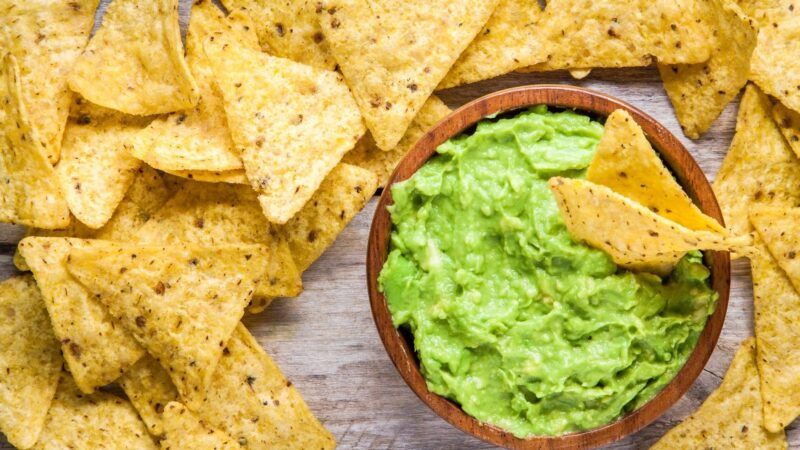How Drug Cartels and Federal Import Restrictions May Cancel Your Guacamole Plans
Almost all of America’s avocados come from a single Mexican state. A threatening message threw it into disarray.

A single "threatening message" was all it took to stop all shipments of avocados from the world's biggest grower—Mexico—to the world's biggest consumer—The United States.
At the same time that Americans were watching advertisements for Mexican avocados during the Super Bowl, the United States Department of Agriculture was putting a halt to all avocado imports from Mexico, raising the potential prospect of nationwide shortages or price hikes. Start hoarding guacamole now, fans.
This is not just a wild story about the unexpected impacts of dangerous Mexican drug cartel behavior. It's also a tale of how complex food regulations and touchy import agreements can lead to overly fragile supply chains.
Here's what happened: America has an agreement with Mexico from 1997 to allow the import of Hass avocados from the State of Michoacán in Mexico. Of the 32 states that make up Mexico, only Michoacán has such an import agreement. The U.S. does not allow avocados in from any other Mexican state, though the Mexican Ministry of Agriculture and Rural Development is hoping that avocado exports from bordering state Jalisco will begin later this year.
The Washington Post reports that an inspector found avocados at a facility that were from a state other than Michoacán that had been prepared for import to the United States. That's not allowed. People from that facility then reportedly attempted to intimidate the inspector, and so the inspectors left and the U.S. Department of Agriculture (USDA) shut down all Mexican avocado imports into the United States.
Americans consume half of all avocados in the entire world market, according to a report from the Hass Avocado Board, an independent industry marketing group. Only a small percentage of those avocados, 15 percent, are grown domestically. The United States imports more than 80 percent of its avocados from Mexico.
Mexican drug cartels have been pushing further and further into the conventional agriculture market, attempting to fix prices to drive up revenue. There are even gang turf wars over limes and avocados. Given the situation, it would seem like a recipe for trouble to put all our import avocados in one basket—or just one Mexican state, as it were.
Michoacán does have thousands of avocado orchards and dozens of avocado packers who meet the USDA's regulatory restrictions to export to the United States. But, nevertheless, clearly there's a problem when a single security issue could halt an entire import category. Avocados may seem a bit low stakes—even the jokes about millennial love of spreading it on toast are old and tired—but this will disrupt thousands of jobs and could wreck a lot of livelihoods.
Why, after 25 years, is importation still stuck in just one state? Federal regulations include very extensive inspection processes to prevent weevils and fruit flies from being imported into the U.S. A spokesperson from the USDA's Animal and Plant Health Inspection Service explains to Reason, "This compliance safeguards the United States against the introduction of economically significant quarantine pests that could be damaging to U.S. agriculture and the U.S. environment. Avocados from other Mexican states are not currently part of the certification program and therefore are not currently enterable into the United States."
Given that the U.S. is the primary consumer of avocados in the entire world, it should come as no surprise that Michoacán has also become the biggest grower of avocados within Mexico itself. There's much less of an incentive to grow as many avocados in other Mexican states because they can't be sent to our market.
It also explains the very high incentive for predatory players to try to force their way into this process. Just before the Super Bowl, the Los Angeles Times noted that the explosion of avocado growth in Michoacán state has led to deforestation and drug cartel bloodshed. The story notes how America's love of guacamole is helping fuel the problem but doesn't contend with how our import restrictions are essentially helping force the hands of Mexican growers.
When the regulations to participate in a market are costly and complex, only big firms can provide goods and services while everyone else is left to make their money on the black market. If more avocado growers across Mexico could send their products to the U.S., there'd be fewer arbitrage opportunities for cartels, more evenly distributed profits across the country, and more guacamole for us.



Show Comments (37)